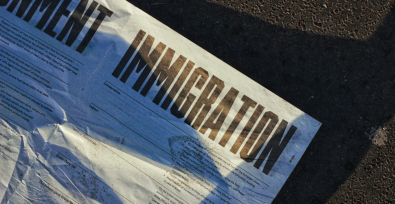We consume or use products that are likely tainted by modern slavery every day. From gadgets to clothing, fish, cocoa, and cane sugar, it is almost impossible to avoid.
So why have we, as consumers, largely ignored or avoided feeling guilty for this?
That is the subject of new research from Michal Carrington from University of Melbourne, Andreas Chatzidakis of Royal Holloway, and Deidre Shaw at University of Glasgow.
They ask: “What of the responsibility of consumers to care about how a product was made, rather than choosing the cheapest product, no questions asked?”
Writing in The Conversation, they point to coping strategies used by consumers::
-
Age Restrictions: One of our interviewees explained how she empathised with children who were exploited, but not necessarily adults. A “grown man”, she told us, had “other options”. Even if an adult was working for less than the minimum wage, she said, “they are earning a bit of money, they’re happy with that […] so I don’t classify it as modern slavery”.
-
Blame their culture: One participant expressed it like this: “if a sweatshop factory is working within the rules and regulations of its host country,” he said, “then by virtue of the ethics of that country it is not morally wrong.”
-
Somehow they deserve it: One interviewee blamed modern slaves for not working hard enough to avoid being exploited. “They have the opportunity to go to school and to get a proper job,” she said. “If they don’t take it, it’s their choice.
-
We’re all slaves, really: We can also trivialise the experience of slavery by suggesting, for example, that we ourselves are “enslaved” (for example to our job, or to technology), or that the working conditions of some slaves aren’t that bad.
So what can we do about this? How do we stop shrugging off the guilt to the point that “where we can no longer take a deny-all-knowledge approach?”
For the team of researchers, that answer is to be determined, but the first step is to admit and expose justifications in our heads — the “neutralisations to shut down moral feeling.”






Freedom United is interested in hearing from our community and welcomes relevant, informed comments, advice, and insights that advance the conversation around our campaigns and advocacy. We value inclusivity and respect within our community. To be approved, your comments should be civil.
If I know about a company using forced labor, I won’t purchase from that company. I’d like to see info on companies “in our face” so that more people would be aware and shop accordingly.
Slavery is part of our economic system . It produces cheaper goods so we ignore it until we become the slaves
We should encourage companies to become “Fair Labour” certified. Similar to something like “GMO-free” produce or “Fair trade” coffee etc. Freedom United should work with other likeminded organizations to set up a body that oversees certification and checks companies’ supply chains. If I saw a “Fair Labour” label on something, I’d be willing to pay more to avoid slavery. But without some sort of certification, paying more is no guarantee for anything at all and we may as well keep buying cheap.
Hi Jim
Thanks for supporting P29 – we’re big fans! Did you know that you can also sign a petition to the Labor Minister in your own country to ask them to adopt this important protocol? Here’s the link to the campaign page: https://www.freedomunited.org/advocate/forced-labour/
Thanks for your support for a slavery-free world!
Sophia
Thanks for all you’ve done to create a more just, more fair world. Products of slavery sold only in countries where there’s a legal market for them (e.g., the USA, China, India). Are you aware there is a way now to virtually eliminate all forced labor products from these markets? Please promote global (OK – Congressional) “Ratification of P029 – Protocol of 2014 to the Forced Labour Convention, 1930.” see: http://www.ilo.org/dyn/normlex/en/f?p=1000:11300:0::NO:11300:P11300_INSTRUMENT_ID:3174672